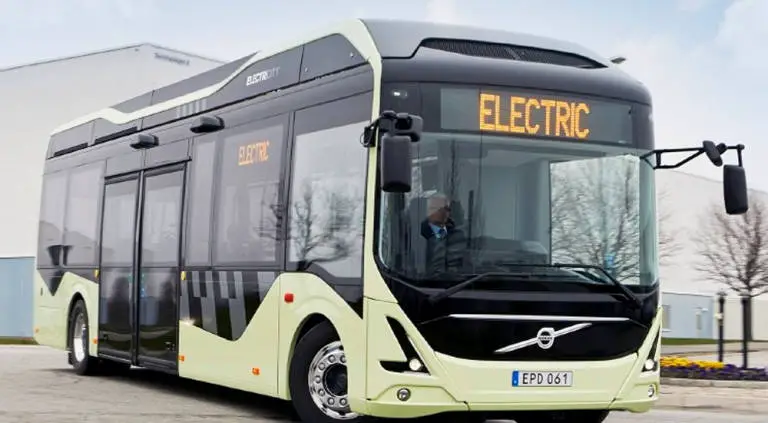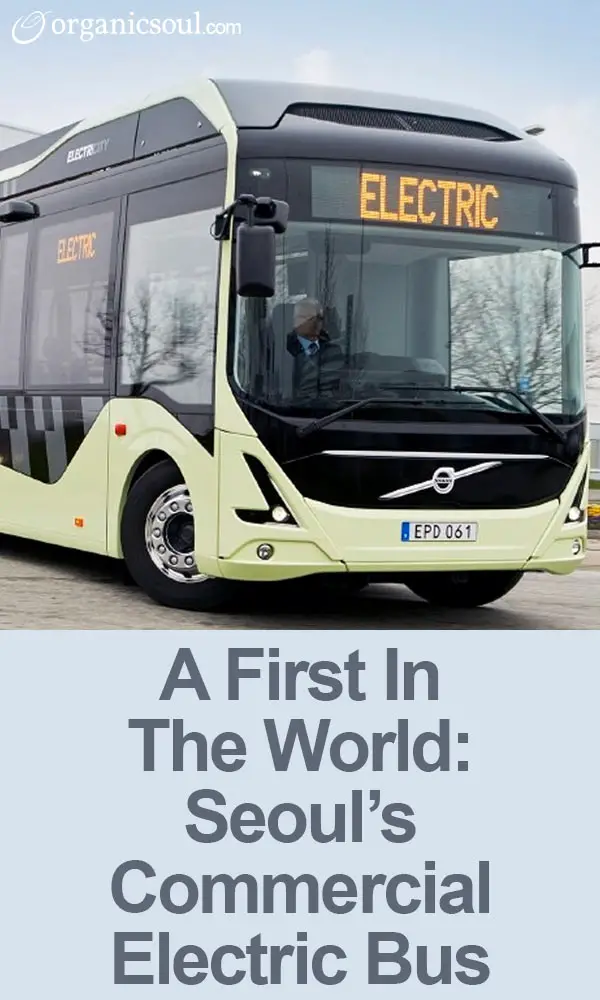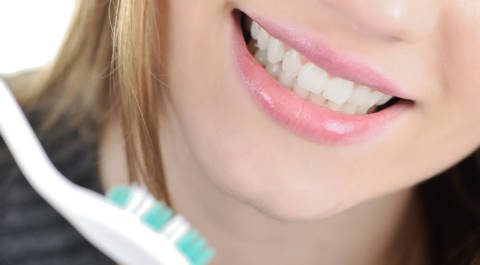
Public transportation has long been praised for cutting carbon emissions by taking more people off the road, and many new efforts, like Metro’s CNG fleet, have been applauded for making advancements to cut the emissions of the actual buses. Recently, however, engineers and public officials in Seoul, South Korea have made groundbreaking progress: commercials use of an electric bus.
Like Organic Soul on Facebook
To its everyday users, the buses look and feel that same as their older counterparts, for the most part. While the five buses now in use have a noticeably sleeker and ‘green’ design, they fit the same overall style of older buses, following much of the same conventions in design. The biggest difference, however, is found on the inside, not the outside.
Rather than using diesel fuel, each bus is powered by lithium-ion batteries. These aren’t your ordinary double AA's, however. The high-capacity lithium-ion battery will last for up to 52 miles after just a 30 minute charge, allowing for a top speed of about 62 mph. Additionally, the buses have been equipped with a system for downhill regenerative braking, which turns the kinetic energy of braking to electricity the bus can use.
Working with Hyundai Heavy Industries and Hankuk Fiber, the Seoul Metropolitan Government has also developed the buses to be lightweight and efficient. They’ve dumped the iron plates usually found in buses and instead are using a carbon composite material, marking another great advancement in energy-efficiency.
By 2020, Seoul hopes to have 120,000 electric vehicles on the road, which will include 50 percent of their public transportation. Clearly, Seoul is aiming at becoming a model for a green, ‘smart-style’ city.
While there are some kinks that need to be worked out with the system, it remains to be a great step in the right direction. Similar advancements have been seen with LA county’s Metropolitan Transport Authority where they have replaced 95 percent of their buses with those that use natural gas, a cleaner alternative to diesel. In fact, according to Metro, the “buses are 97% cleaner than the diesel buses they replaced. They reduce cancer-causing particulate matter by 98%, carbon monoxide by over 80% and greenhouse gases by over 20%…[this reduces] air pollution by more than 152,000 pounds each day.”
With companies like Ford releasing new electric cars and more and more people becoming turned on to hybrids, it appears we’ve have begun to make a smart change in our choice of transportation. With fewer cars on the road and more efficient, greener designs, emissions will go down and air quality will go up.
If you’re interested in learning more about Seoul’s bus service, you can read their press release here.
If you’re interested in Los Angeles’s Metropolitan Transport Authority, see their website here.
















